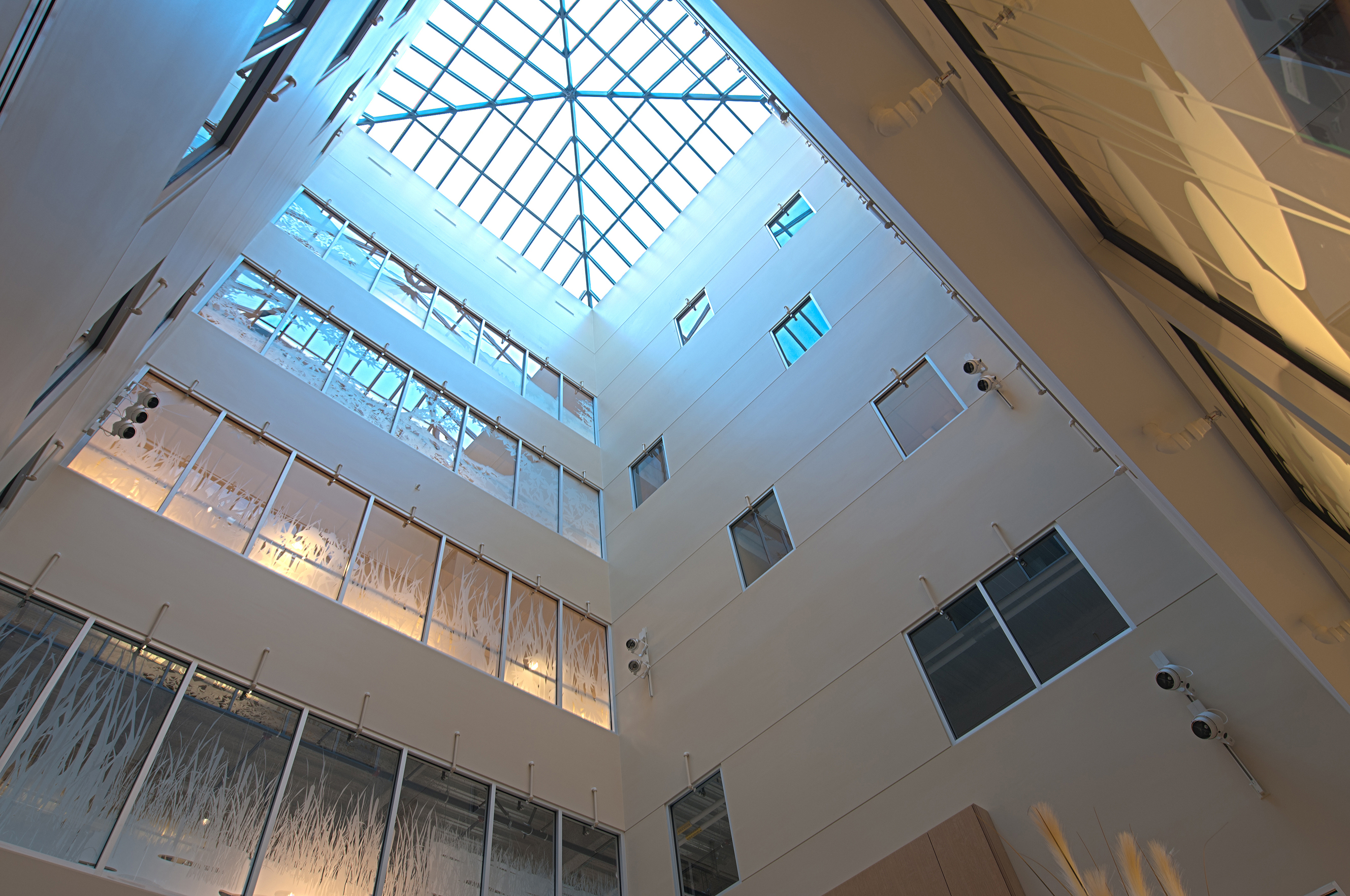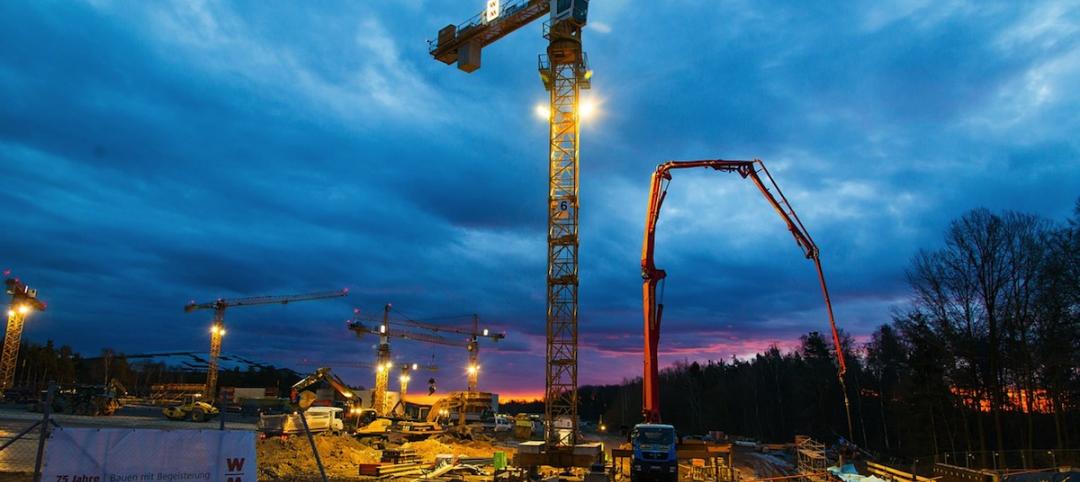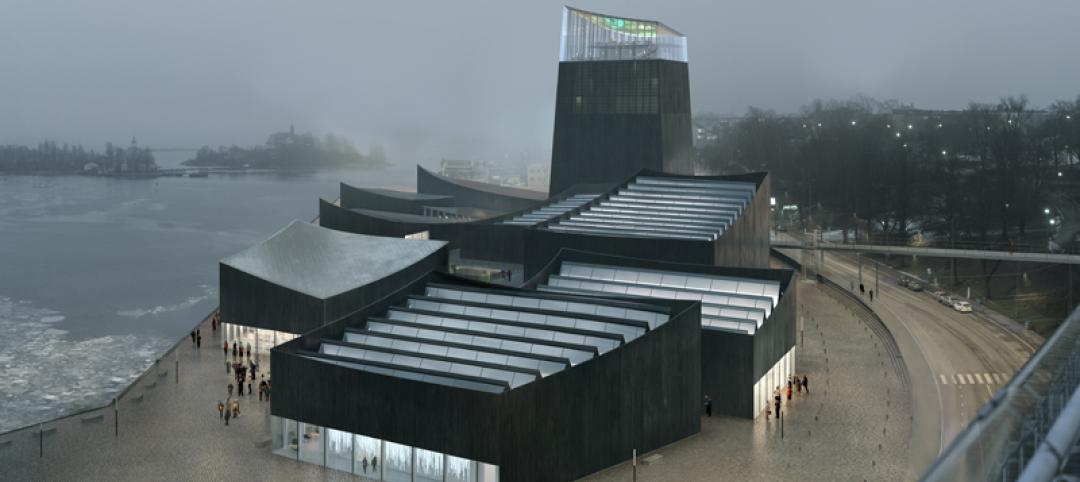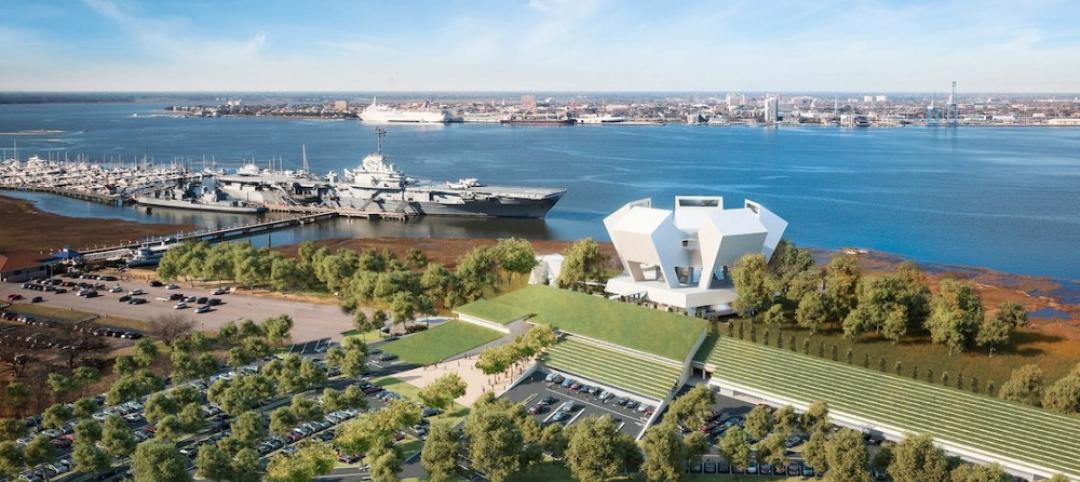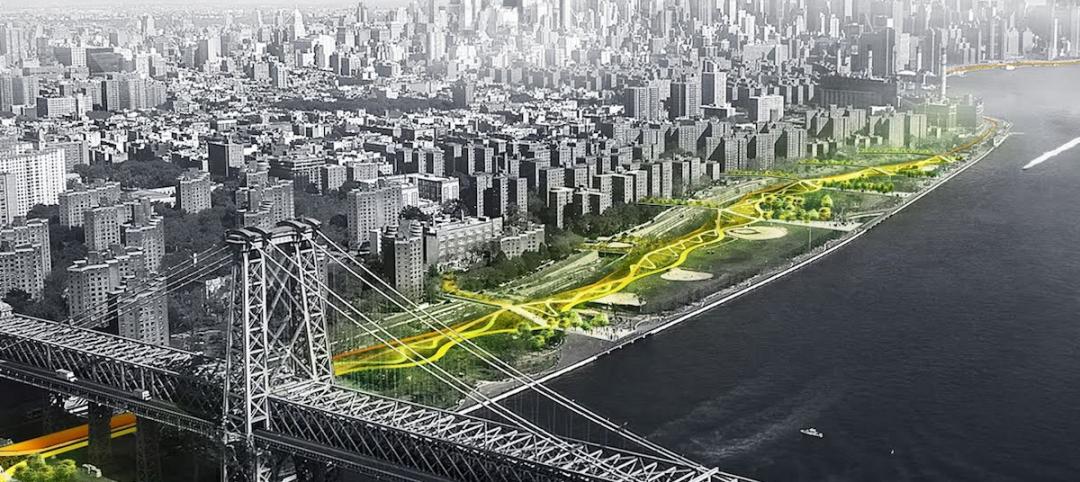Suffolk Construction recently joined Baystate Health in celebrating the opening of phase one of its expansion and facility-replacement project at Baystate Medical Center. Located in Springfield, Mass., the $296 million, 641,000-sf new clinical facility houses a heart and vascular center as well as critical-care and inpatient rooms designed in collaboration with patients and families. Suffolk has already begun work on phase two, a new Emergency Department, which will triple the size of Baystate’s existing emergency room, one of the busiest in the nation.
The new MassMutual Wing features the Davis Family Heart and Vascular Center, which includes six cross-functional surgical/endovascular suites. Representing the latest in patient-focused design, a new 20-room CARE (Cardiovascular Assessment, Recovery, and Evaluation) unit allows patients undergoing outpatient procedures to go from pre-op to discharge in the same room, with the same nursing team. The facility also consists of 96 private inpatient rooms and 32 cardiovascular critical-care rooms.
Suffolk provided preconstruction and construction management services for the project, which is part of a 15-year master plan for the hospital—the largest medical facility in Western Massachusetts. The project is predominantly new construction, including multiple tunnels and bridges, with tie-ins to two existing buildings. Of the new construction, approximately 40% remains as shell space for future development. Suffolk maintained vehicular and pedestrian traffic flow while relocating sidewalks, utilities, and the hospital’s main patient valet entrance. Permanent and temporary earth retention systems were required as the new building foundation was much lower than the existing adjacent buildings. The facility features its own central heating and cooling plant with three chillers, two cooling towers, and three boilers.
Using Building Information Modeling (BIM), Suffolk saved significant time and money on the project. The team is also working with Baystate Health to develop 6D facility maintenance options that will best suit the hospital’s needs in order to operate the building in the most efficient and economical ways possible. Suffolk adhered to the sustainable design principles of The Green Guide for Health Care and incorporated green elements, including a seven-story light well and green roof.
For more than three and a half years, Suffolk worked with Baystate Health to ensure that local workforce goals were achieved. The project created an average of 300 construction jobs, and seventy-seven percent of the total hours worked were by Springfield residents, people who live within 50 miles of Baystate’s Springfield campus, women, or minorities. BD+C
Related Stories
High-rise Construction | May 6, 2015
Parks in the sky? Subterranean bike paths? Meet the livable city, designed in 3D
Today’s great cities must be resilient—and open—to many things, including the influx of humanity, writes Gensler co-CEO Andy Cohen.
Architects | May 5, 2015
How to build 'smart' teams
In today's complex world, there are no simple answers—solutions to our most pressing problems aren't offered in 140 characters. Instead, it takes teams of people to rise to a challenge, resolve issues, and execute on strategy, writes Paladino's Julie Honeywell.
Multifamily Housing | May 1, 2015
Trade groups extend campaign to promote apartment living
The groups claim that there are more than 37 million Americans—12% of the population—living in just under 20 million apartment units nationwide. Apartments and their residents contribute $1.3 trillion annually to the economy.
Contractors | May 1, 2015
Nonresidential fixed investments fall in latest Construction Economic Update
This is the first time that nonresidential fixed investment declined since the first quarter of 2011, ABC reported. Nonresidential fixed investment had been rising by more than 4% on an annualized basis during five of the previous six quarters.
Architects | Apr 30, 2015
Safdie Architects accepting applications for 2015 Research Fellowship
The program, which features a theme of “dense urbanism,” encourages participants to tackle the challenges associated with contemporary urban landscapes using new tools and solutions to create a better functioning and humane city.
Museums | Apr 27, 2015
Finalists’ designs for Guggenheim Helsinki competition released
A custom-developed App engages an international public in the selection process.
Wood | Apr 26, 2015
Building wood towers: How high is up for timber structures?
The recent push for larger and taller wood structures may seem like an architectural fad. But Building Teams around the world are starting to use more large-scale structural wood systems.
Museums | Apr 23, 2015
Moshe Safdie unveils pentagonal scheme for National Medal of Honor Museum
The new museum near Charleston, S.C., will archive the history of the nation's highest military honorees.
Green | Apr 23, 2015
3 sustainable projects take top prize in 2015 Global Holcim Awards
Projects from Colombia, Sri Lanka, and the U.S. were chosen by the Holcim Foundation for the impact the projects have on their local communities.
High-rise Construction | Apr 23, 2015
Size matters in NYC, where several projects vie for the city’s tallest building honor
The latest renderings of 217 West 57th Street show a tower that would rise higher than the World Trade Center’s pinnacle, when elevations are included.


